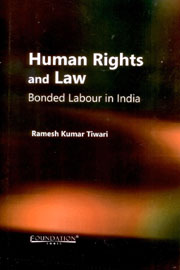Book contents
- Frontmatter
- Contents
- List of Tables
- Foreword
- Preface
- 1 Introduction
- 2 Slavery and Debt Bondage in British India: Policy and Implementation
- 3 Debt Bondage during the Post-Independence Period: Policy Developments
- 4 Problems in the Implementation of Bonded Labour System (Abolition) Act, 1976
- 5 Rehabilitation of Released Bonded Labourers
- 6 Judicial Intervention
- Conclusion
- Appendices
- Glossary
- Biographical Notes
- Bibliographical Essay
- Index
Preface
Published online by Cambridge University Press: 26 October 2011
- Frontmatter
- Contents
- List of Tables
- Foreword
- Preface
- 1 Introduction
- 2 Slavery and Debt Bondage in British India: Policy and Implementation
- 3 Debt Bondage during the Post-Independence Period: Policy Developments
- 4 Problems in the Implementation of Bonded Labour System (Abolition) Act, 1976
- 5 Rehabilitation of Released Bonded Labourers
- 6 Judicial Intervention
- Conclusion
- Appendices
- Glossary
- Biographical Notes
- Bibliographical Essay
- Index
Summary
This study primarily deals with the process of policy-making (legislation) in the context of the Indian Slavery Act, 1843 and the Bonded Labour System (Abolition) Act, 1976. Comprehensive coverage has been given to the role of the various institutions and the intricacies involved in the formulation of the legislation. It has also brought to the surface some important issues regarding the indifference of the state governments and the collusion of the district machinery with the vested interests at the time of enforcement. The judicial intervention provided a fresh lease of life to the problem of bonded labour. Several judgments and directions made by the Supreme Court of India led to a more comprehensive definition of bonded labour and cast aspersions on the ineffective enforcement of the Act. It also gave a certain amount of dynamism to the activists and NGOs.
My interest in the problem of debt bondage started in the early eighties when I was assigned studies dealing with the rehabilitation of bonded labour sponsored by the Ministry of Labour, Government of India. These studies were carried out in different parts of the country: Tehri Garhwal (Uttar Pradesh), Jabalpur (Madhya Pradesh), Monghyr (Bihar), Koraput (Orissa), Medak (Andhra Pradesh) and Chickmagalur (Karnataka). The purpose was largely to evaluate the rehabilitation of the released bonded labour. These studies also marginally looked into the sociological and economic aspects of bondage.
- Type
- Chapter
- Information
- Human Rights and LawBonded Labour in India, pp. xii - xivPublisher: Foundation BooksPrint publication year: 2011



